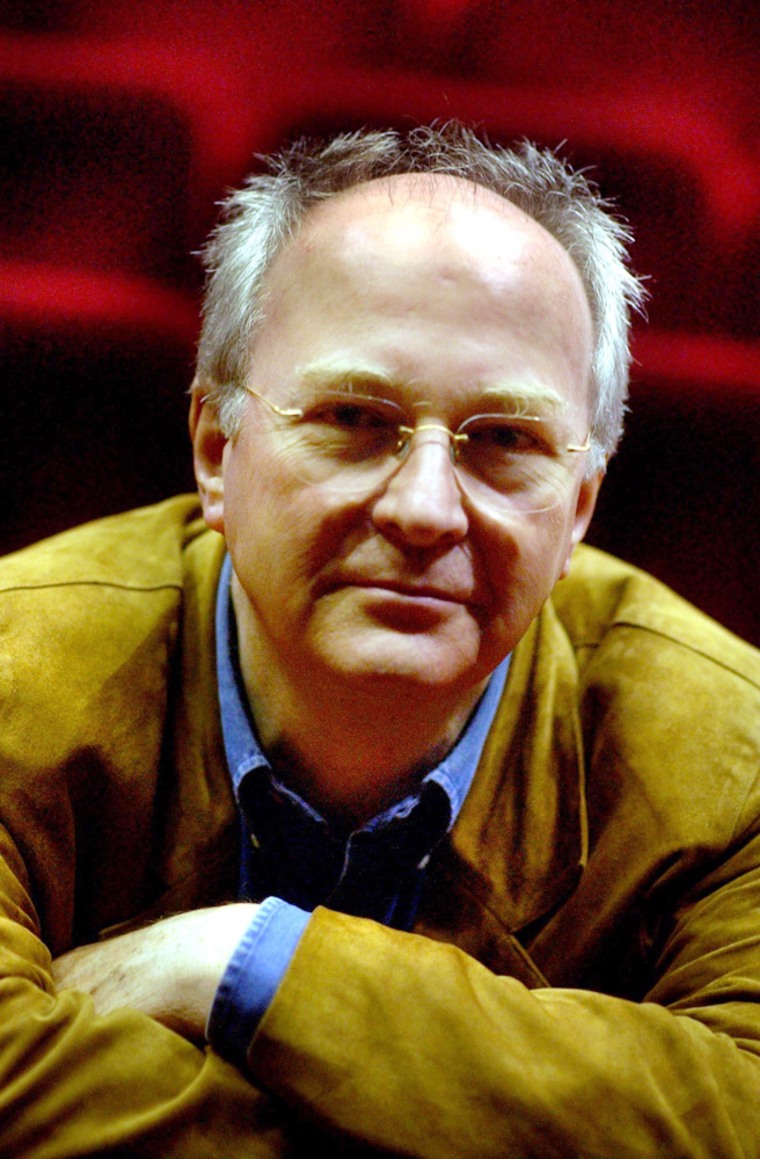“The Golden Compass” is the first in Philip Pullman’s “His Dark Materials” trilogy. In the first volume, Pullman invites readers into a world as convincing and thoroughly realized as Narnia, Earthsea or Redwall. Here lives an 11-year-old orphaned ward named Lyra Belacqua, whose carefree life among the scholars at Oxford's Jordan College is shattered by the arrival of two powerful visitors. First, her fearsome uncle, Lord Asriel, appears with evidence of mystery and danger in the far North, including photographs of a mysterious celestial phenomenon called Dust and the dim outline of a city suspended in the Aurora Borealis that he suspects is part of an alternate universe. He leaves Lyra in the care of Mrs. Coulter, an enigmatic scholar and explorer who offers to give Lyra the attention her uncle has long refused her.
Some eager readers sent in questions for Philip. In his answers, he discusses anti-Catholic comments, how he imagined such an epic world, and how he came up with the daemon characters. Read his responses:
How do you respond to the claim that your books are anti-Catholic and promote atheism? Lyndsay Petersen, Parkersburg, Iowa
Hello, Lyndsay: In the world of the story — Lyra’s world — there is a church that has acquired great political power, rather in the way that some religions in our world have done at various times, and still do (think of the Taliban in Afghanistan). My point is that religion is at its best — it does most good — when it is farthest away from political power, and that when it gets hold of the power to (for example) send armies to war or to condemn people to death, or to rule every aspect of our lives, it rapidly goes bad. Sometimes people think that if something is done in the name of faith or religion, it must be good. Unfortunately, that isn’t true; some things done in the name of religion are very bad. That was what I was trying to describe in my story.I think the qualities that the books celebrate are those such as kindness, love, courage and courtesy too. And intellectual curiosity. All these good things. And the qualities that the books attack are cold-heartedness, tyranny, close-mindedness, cruelty, the things that we all agree are bad things.
Is there an underlying message for atheism in your book or did you simply want to write a fantasy story, like Tolkien? Kim Mapstead, Friday Harbor, Wash.

How do you imagine such an epic world in “The Golden Compass”? Did you look for it or did it come to you? Muhaimin
Hello, Muhaimin: This is an interesting question, because it’s something I’ve often wondered about myself. When I’m telling a story I know, with part of my mind, that I’m making it up; but with another part of my mind, it feels as if I’m discovering something that is already there, in some mysterious way, and I’m learning about it rather than inventing it. So I can’t give you a definite answer! The one thing I do know is that if I don’t work steadily and try to write every day, no story will get written at all. So I try to do that.
I have always wondered about a bear's armor. It is said that armor is the soul of the bear, yet doesn't Iorek forge a replacement set? Perhaps I misunderstood something from the text, but if the armor is taken from a bear, does creating a new set give the bear his soul back? Paul Jacobs, Corvallis, Ore.
Hello Paul: Thanks for the question. When Iorek said that to Lyra — describing his armour as his soul — he was using a metaphor to express how important the armour was to him. Each bear makes his own armour, piece by piece, and gradually acquires the full set as he grows to maturity; so naturally it’s very important and special. The forging scene involving Iorek doesn’t involve his armour, but Will’s Subtle Knife.
Dear Mr. Pullman, My class is reading “The Golden Compass” and we were wondering how did you come with the concept of daemons? What inspired you? Hayden (age 8) Annadale, Va.
Hello, Hayden: Thank you for the question, and please give my greetings to your class and to your teacher. The idea of daemons came to me very suddenly and from nowhere that I can be sure of. I wrote the first chapter of “The Golden Compass” several times before I got it right, and at first it wasn’t going well at all. I didn’t know why until I realized that Lyra had to have a companion to speak to and share things with, and suddenly this daemon idea just came into my mind. It was an exciting moment, and it made the whole story come into focus for me. I’m still discovering new things to do with the idea, and I’m writing about them in a book that will be called “The Book of Dust.” But I’m a long way from finishing that yet.